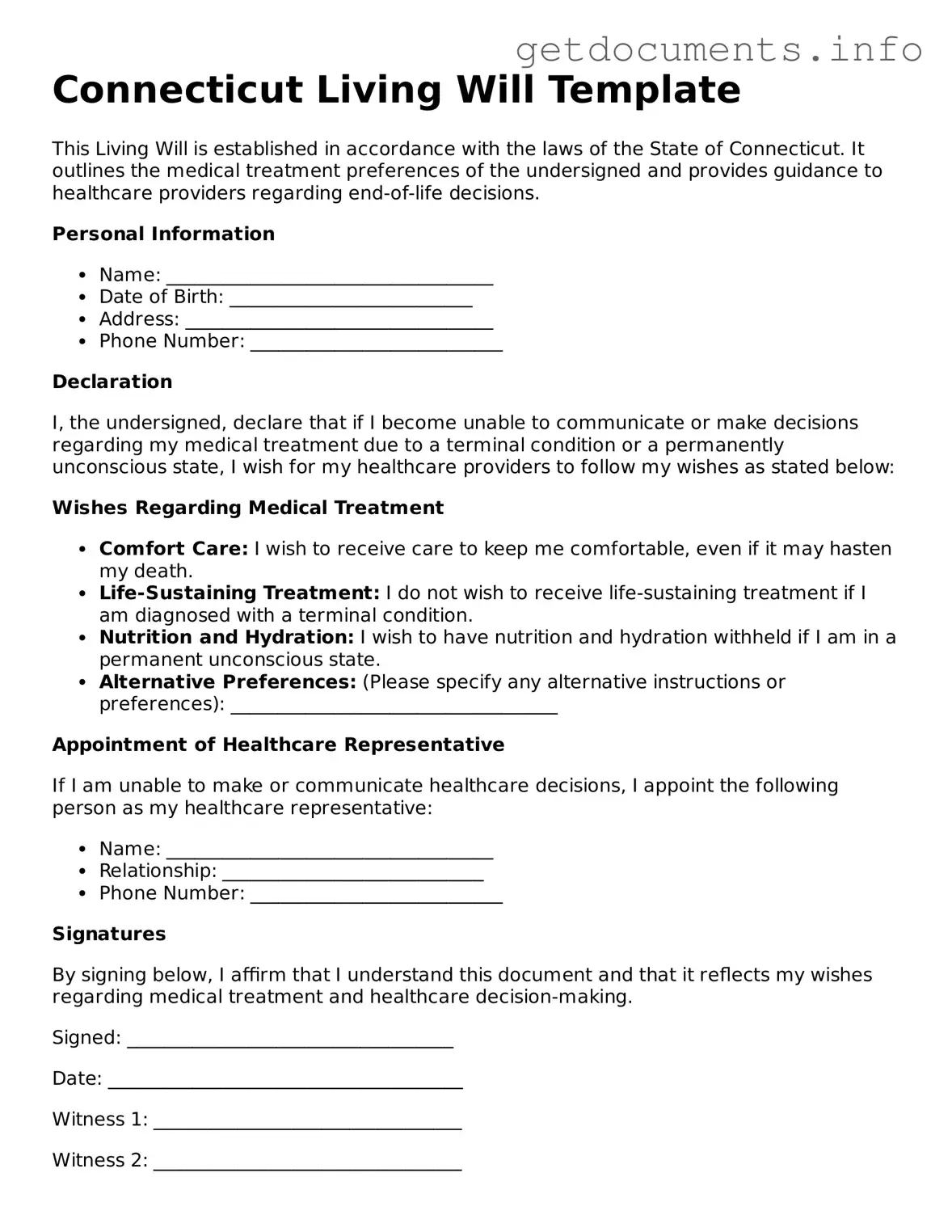Free Living Will Template for Connecticut
A Connecticut Living Will form is a legal document that allows individuals to express their wishes regarding medical treatment in the event they become unable to communicate those preferences. This important tool ensures that your healthcare decisions align with your values and desires, even if you cannot speak for yourself. To take control of your future healthcare decisions, consider filling out the form by clicking the button below.
Access Living Will Editor

Free Living Will Template for Connecticut
Access Living Will Editor
Got places to be? Complete the form fast
Fill out Living Will online and avoid printing or scanning.
Access Living Will Editor
or
⇩ PDF File
